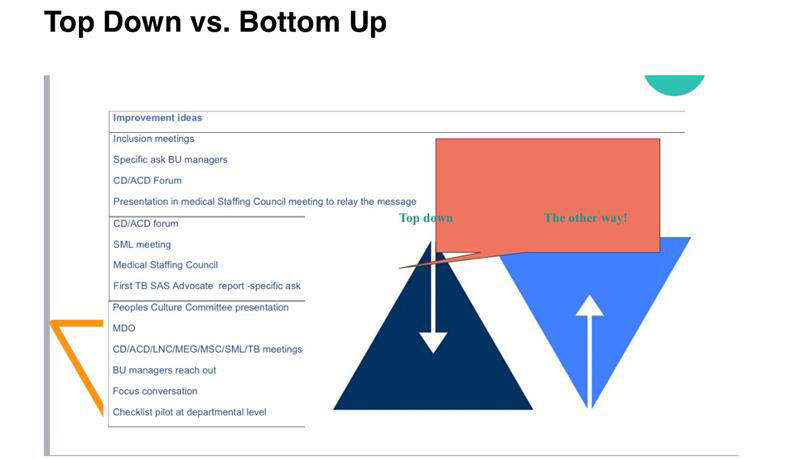When I was appointed as the first SAS advocate in England, I had no idea how transformative the role would become for me personally and for the SAS colleagues I’ve had the privilege to represent. It wasn’t just about having a title; it was about having a voice, and more importantly, ensuring that others had a voice too.
As specialist, associate specialist and specialty doctors and dentists, we are a diverse group that sometimes feels lost between the larger groups of consultants and resident doctors. Our contributions are significant, but historically, our voices have sometimes been drowned out. This is where the role of an SAS advocate becomes crucial.
Finding my way as an advocate
When I first stepped into the role, I wasn’t entirely sure what to expect. In some ways, it felt like walking a tightrope balancing the expectations of the trust, the key stakeholders, and the SAS doctors and dentists I represented.
The very heart of this role is about creating a bridge and, as I discovered, it wasn’t just about speaking up when things went wrong; it was about making sure SAS doctors had access to opportunities, professional development, and, crucially, the correct terminology and acknowledgment.
One of the first tasks as an advocate was to set up a support network in my trust and creation of SAS quad (SAS tutors, SAS local negotiating committee representatives and SAS doctors and dentists).
I’ll never forget the first few meetings. We are a growing skilled workforce, but many felt their career progression has stalled. Some mentioned they weren’t given the same opportunities for development or leadership roles. Others expressed frustration at being overlooked for inclusion because our titles didn’t carry the same weight as our consultant colleagues.
Those early conversations solidified for me the need for advocacy – not just in our trust but in every NHS trust across the country.
Why every trust needs an SAS advocate
In my time as an advocate, one thing has become crystal clear – every trust needs an appointment in this role. SAS doctors make up a significant portion of the NHS workforce. They bring a wealth of experience, stability, and expertise to departments, yet without adequate representation, they can feel isolated or overlooked.
The role provides a dedicated voice and SAS expertise at the table when building career conversations, feedback mechanism including SAS workforce meeting, PTB meetings open to the member of public, SAS wellbeing survey, SAS wellbeing forum, health and wellbeing clinic or issues like bullying or unfair treatment arise. It’s about ensuring fairness and fostering an environment where doctors and dentists regardless of our ‘title’ can thrive.
An intersectional lens
One of the most rewarding aspects of this role has been seeing the positive changes, big and small. It’s not just about individual wins the benefit not only SAS doctors and dentists but for our patients, and the wider NHS.
Being an advocate isn’t about having all the answers; it’s about listening, supporting, and fighting for fair treatment and inclusion alongside the BMA, NHS Employers and AoMRC.
The road ahead
The role is about one simple principle: making sure that every doctor feels seen, heard, and supported. That’s the kind of NHS I believe in.
Together, we keep moving forward. Though challenges remain, we are committed to progress, even if the path isn’t always easy.
With collaboration and a shared vision, we are creating an environment where SAS doctors are being listened to. We are still not perfect, but we are trying our best.
Let’s celebrate SAS Week 2024 and happy advocacy!
UHDB Approach: Top-Down vs Bottom Up


